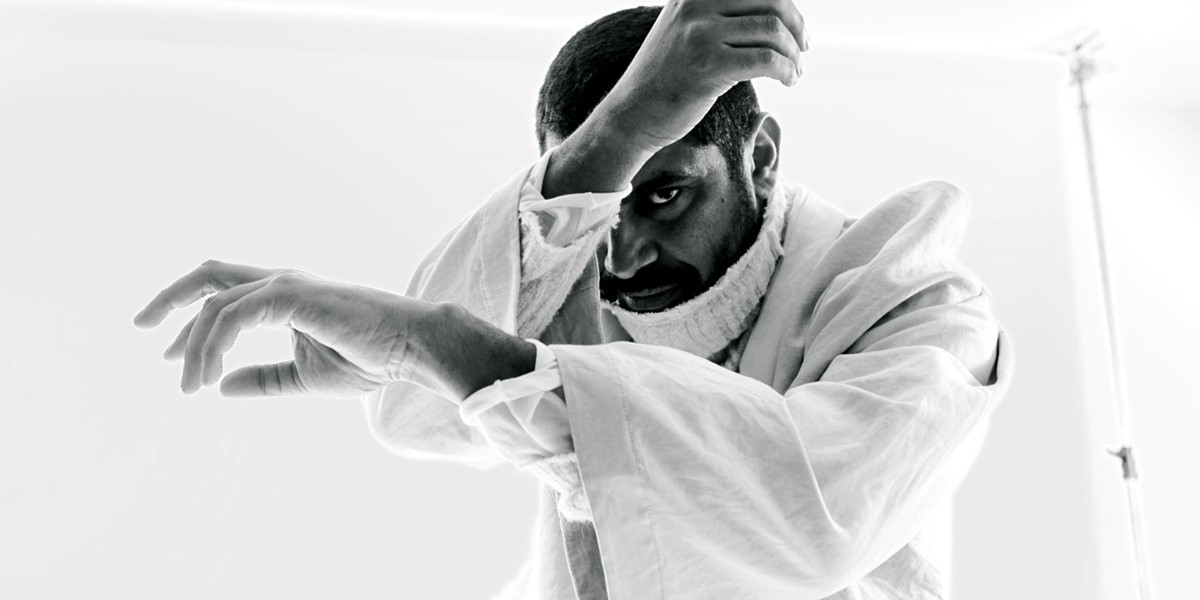Friday, October 9, 2020
Criolo interview: “The streets of Brazil are going to burn even more, but all we want is an end to suffering. We cannot take any more”
Brazilian artist Criolo gives his frank views on Brazilian society today and although the challenges for its future look daunting, he tells David Katz why he remains hopeful for his country

Brazil is facing unprecedented challenges in our unstable era of COVID-19. The election of the maverick right-wing populist, Jair Bolsonaro, spelled the end of decades of progressive reform, his assumption of the presidency at the start of 2019 having dramatic consequences for Brazil’s black and indigenous populations, its LGBTQ+ communities, and the nation’s ecological health; with parallels to the Trump presidency, Bolsonaro’s election also facilitated acts of hostile aggression, with physical attacks meted out to figures on the left and ordinary people deemed out of step with the new regime’s ethos. Then, the arrival of COVID-19 made things dramatically worse, since the president refused to acknowledge the disease, ignoring social distancing protocols at mass rallies, where he repeatedly downplayed or denied the unfolding pandemic, leaving Brazil with one of the world’s highest COVID-19 death rates.
“Here in Brazil, we’re living in a moment that is surely going to be in the history books as one of the worst in the nation’s history,” says Criolo, on a lockdown call from his home in São Paulo. “Even if he was democratically elected, I don’t recognise him as a leader, and I don’t think that he’s prepared to govern the country in the moment that we are living in now.”
During the last 15 years, Criolo’s music has undergone striking transformations, moving from the hardcore rap of his 2006 debut, Ainda Há Tempo, through the hybrid breakthrough of 2011’s Nó Na Orelha (reviewed in #86), which mixed rap with reggae, jazz and Afrobeat, and on to the sung samba of Espirao de Ilusao, his last full studio set, released in 2017 (and a Top of the World review in #135). Throughout it all, Criolo has continually addressed Brazil’s long-standing social inequalities, the pervasive racism of the society and other social ills, so it is perhaps unsurprising that he was one of the first to attack Bolsonaro in song through the single ‘Boca de Lobo’, issued early on in the presidential campaign.
“‘Boca de Lobo’ is a timeline of everything that we lived in Brazil, socially and politically, during the last five years,” Criolo explains regretfully. “It’s a manifesto against things that we don’t want any more and everything got so much worse since the moment when it was recorded, because the president is doing exactly what he promised.”
The song title references the large sewage drain grates, known as ‘wolves mouths,’ to symbolically warn of the grave dangers facing the nation, the accompanying video showing a dystopian landscape of systemic violence against marginalised communities, enabled by governmental corruption. “It was a way of putting out an alert of the hell that we were about to witness and that the worst was still to come,” Criolo continues. “Boca de lobo is the term for the drain where you hide all the trash, where all the shit drains; it’s like the smell of disgrace coming out from the society, but when it floods, blind people say, ‘It’s just because of the rain.’ The last elections were not driven by the best option to rule the country, but by hate; it was a hate campaign that people got into, but they were not foreseeing what could come when someone is elected that way. He fortified the differences that we already have in our country, he promised that he would give no land to indigenous people or any social community and even this ideological persecution against the LGBT community now, we see all of this reflected in reality, in the violence growing against these groups, in the people getting guns and thinking that they can solve things by themselves in the streets with violence.”

Criolo and Milton Nascimento; the pair have recently released Existe Amor together (Fred Siewerdt)
Criolo emphasises the duplicity of the campaign and the illusions fostered by the regime, as well as decreasing human rights, once Bolsonaro took office. “There is a kind of theatre going on, where the politicians pretend that they are not pro-violence, not approving these things that are taking place. But behind the curtain, there is this movement of approval of their supporters to act, almost like an apology for the violence. There is this idea of fighting against corruption that is present in Brazil since the land was invaded by Europeans, but Bolsonaro created a group of hateful beings around him and his main platform during his campaign was hate towards minorities, that minorities had to bow to him and had to be happy just to have been given the possibility to exist. These speeches against corruption were more of a façade than anything else; it was a way to undermine whatever they considered different for their plan to take over ideologically. So there is a state of not caring about the indigenous lands, about the indigenous people and their culture; their lands are being invaded now more than ever and there have been killings of indigenous political leaders. There has also been an increase in violence against the black community – a majority 60% of persons in Brazil – and the LGBT community is also fighting daily for the few rights that they have, which are threatened, because the government is taking measures against all these communities.”
In 2019, Criolo directly addressed issues facing Brazil’s LGBTQ+ community through the song ‘Etérea’ (Ethereal), a house music track with an award-winning video, featuring an array of trans activists displaying original dance moves. “I wrote the song because I was concerned and I searched for LGBT friends and leaders that would help me make this contribution to the cause in the most respectful and correct way, including Raquel Virgínia, a singer and activist from the group As Bahias e a Cozinha Mineira.”
An accompanying documentary video about the project, directed by Tino Monetti and Pedro Inoue, was screened at Flair! and other international film festivals, highlighting that Brazil currently holds the disgraceful distinction of being the country with the highest murder rate in the world for lesbians, gays and trans people, with 420 homicides recorded in 2018. “Everybody gave a creative input because the music video is actually each of them performing as they wanted,” adds Tino Monetti. “We wanted to open Criolo’s platform to the political work they are doing in each of their collectives and in the documentary they talk about the situation for LGBT people right after Bolsonaro was elected, during the time when the supreme court was debating the ruling of homophobia as a crime.”
“It’s a terrible situation,” continues Criolo. “These people are on the frontline. They live their lives on a daily basis in an intense way, because they are constantly being persecuted.”
As has been the case in the UK and the US, Criolo says that he sees the arrival of COVID-19 as something that highlights the divisions and inequalities already inherent in Brazilian society. “What the virus does is to put a magnifying glass on the social issues of our country, to make a lot of people see more broadly what the social issues are that people go through every day,” he emphasises. “So everyone can catch the virus, but not everyone can get access to health systems and this disgraced state that Brazil is presenting has always been there in the way that we have always lived, with a social abyss and a lack of vision and support for political laws, thinking about the society as a whole. So now with the pandemic, these numbers just show more clearly how these differences are in our country because the highest numbers are in the lower-class part of the society and they are getting inside the racial issues as well. The streets of Brazil are going to burn even more, but all we want is an end to suffering. We cannot take any more.”
By now, Criolo’s voice is quivering, broken by the emotional weight of considering the daunting state of the nation. Yet, despite all these challenges, he remains hopeful and focused, continuing to use his music in the fight for positive change. He has recently launched Criolo TV, a platform on Twitch, to engage directly with his fan base, and his new EP, Existe Amor, recorded with MPB giant Milton Nascimento, forms the launching pad for a COVID-19 crowdfunding campaign to benefit 40 million vulnerable people in Brazil, which has already received over £35,000 in donations.
“The project is the result of a very good friendship with Milton and of love for music,” Criolo explains. “It’s a celebration of life and even though the lyrics can touch on very hard subjects, it’s done in a way of love and respect. Ultimately, music makes our spirits strong; it proposes a communion, warms our souls, and reminds us that we are not alone. Music amplifies the feelings and the voices of the people and that is extremely important now, this role of music in making a bond, a connection among everyone, because there’s a whole generation fighting against depression in this moment; love is the strongest weapon that we have against fear, love is the strongest weapon that we have against the violence that these world leaders are spreading around, and music is the main tool of love.”
This article originally appeared in the October 2020 issue of Songlines. Never miss an issue – subscribe today!

